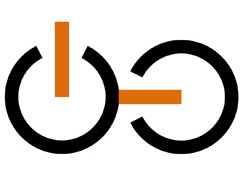September 18-23, 2016
University Residential Center
Bertinoro (Forlì-Cesena), Italy
ScalPerf aims at taking an integrated look at the opportunities and constraints on the road to ever higher performance and productivity of computing systems. Distinguished researchers are invited to exchange their perspectives on different areas that can contribute to scalable computing.
The workshop will include invited talks and discussion sessions. The talks can cover established results as well as brain storm on future research directions. The discussion sessions are two, each consisting of a first part to sharpen the formulation of the issues and a second part to explore answers. This year, the topic of discussion is
Architectures, algorithms, and software for big data and analytics
Background: As discussed during the last few gatherings of ScalPerf, the value and hence the need for data scientists in the society is significantly increasing. This development will affect business analytics, big data and cognitive computing (including machine learning) etc., as well as many areas of scintific computing.
In a report, McKinsey&Company points out that there will be a shortage of talent necessary for organizations to take advantage of big data. By 2018, the United States alone could face a shortage of 140,000 to 190,000 people with deep analytical skills as well as 1.5 million managers and analysts with the know-how to use the analysis of big data to make effective decisions. The availability of high amount of high fidelity data, availability of large compute power via loosely coupled cluster computing incorporating GPUs, and advancement in algorithms in likes of Neural Net has led to a large and diverse amount of research in the area of cognitive computing. At the same time, VLSI has reached a point where the newer generations of technologies while expected to give continued growth in density, will not give increased transistor performance. This is leading to significant activities in smart memory and processor micro architecture, particularly in support of the workload emerging from areas described above.
At ScalPerf, we have been examining the topics described in the above paragraphs under various
angles. This year, the workshop will bring together these topics and discuss the related
hardware, software, and algorithmic advances, including anticipated performance issues.
Participants will be invited to submit suggestions for specific issues to include in the discussion a few weeks before the workshop.
In addition to the invited speakers, participation of other interested researchers, particularly graduate students and junior researchers, is welcome. An expression of interest can be sent to bilardi@bici.eu, including a brief CV.
